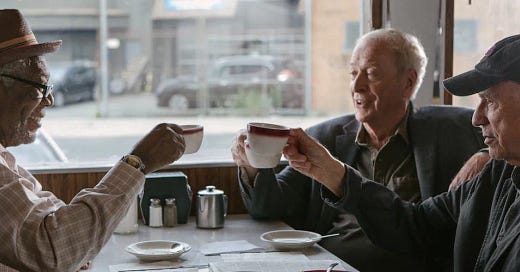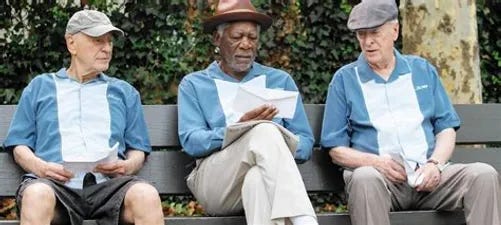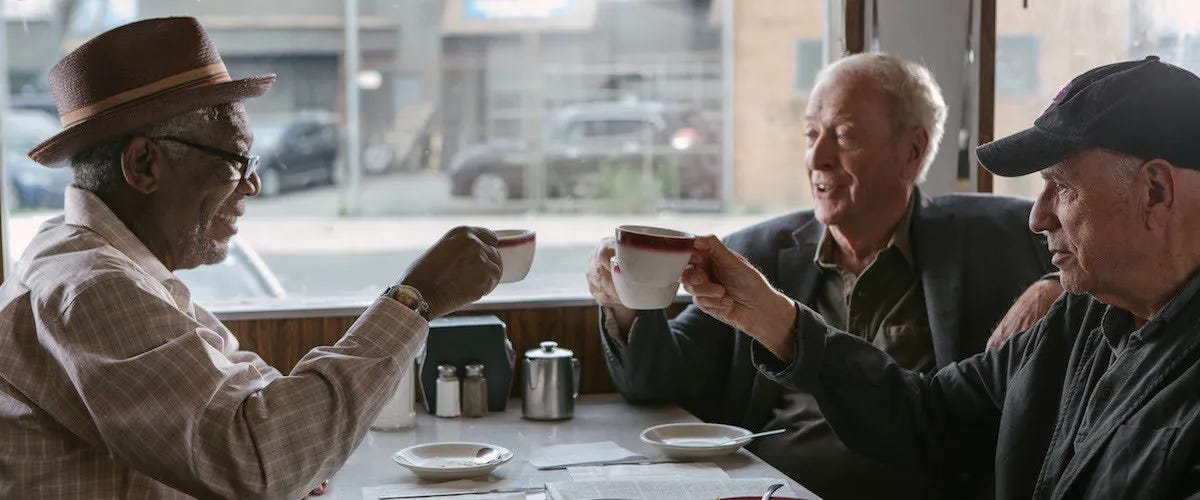“Friendship is a mirror to presence and a testament to forgiveness” ~ David Whyte Consolations
“When friendship is settled, you must trust; before friendship is formed, you must pass judgement.” ~ Seneca - On True & False Friendship
“I have had to learn the simplest things
last. Which made for difficulties.” Charles Olson - Maximus, To Himself
In his (unfinished) Maximus sequence of poems started in the 1960s Charles Olson creates his central character Maximus (based on Maximus of Tyre, a 2nd C. AD Roman merchant and writer) as a semi-autobiographical alter-ego whose travails and interactions with his natural world he documents through a self-reflective conversation with himself. We all read poetry differently: the cadence and rhythm of the structure, as well as the individual words and their nuanced meaning, resonate differently for each reader, creating a unique individual response and narrative, itself dependent on our emotional state and receptivity at the time. The best poems, the ones we cleave to for their healing power to - W.H. Auden’s phrase - be the exact expression of mixed feelings, stay with us for life and resonate differently as we revisit them in different seasons and at different points on the arc of our fortune.
So it is with Maximus and me. There is an innate melancholy in Maximus, not unhappiness per se, but reflective with a tinge of sadness that his self-knowledge came late after a career spent in a world of which he never truly felt a part. Of his business, he writes
It could be, though the sharpness (the achiote)
I note in others,
makes more sense
than my own distances. The agilities
they show daily
who do the world’s
business
And who do nature’s
as I have no sense
I have done either
At the start of the sequence, the first lines of which I have set at the top of this letter, Maximus is looking out to sea, alone. Whether he is on a ship or not is hard to tell; he might be (“It is undone business | I speak of, this morning, | with the sea | stretching out | from my feet”) but equally, he might be standing on dry land and reminiscing about the trips he had to take as he went about his trade. Either way, there is a sense of aloneness and history of aloneness that pervades the poem and a present realisation that perhaps the most important things, the things that make life worth living have not been as fully appreciated as they might have been. And that it might be too late to start.
One of those things is the nurturing and company of friends.
I too have had to learn the simplest things last.
I have, in the course of my life, made the mistake of lacking clarity in my definition of friendship, of mistaking the camaraderie of those with whom I was involved in business pursuing some objective of self-interest which just happened for a while to be aligned with theirs, as friends.
Which made for difficulties.
And as I was always busy with something, migrating from one group of people temporarily aligned in the direction and velocity of their self-interest to another and at the same time had a growing family who formed my base and harbour, I found myself short of time for cultivating relationships that did not fit into some vague definition of utility. The consequence of which was a withering of those friendships to companions formed in child- and young adulthood, at school and university, where the roots are deep and if tended to can, over time, bear witness to the evolution of life lived before we perfected what David Whyte refers to as our “armoured personalities” and their substitution with an ever-changing flux of bands based on utility.
In a growing family, conservatively structured as mine was and is, there is a tendency for the men to delegate the task of friendship management to their spouse and so friends are recruited from those activities that centre on the children and the ties of amicable co-operation and solidarity that mothers weave as they wait at Kindergarten, on the edge of the sports field, at events at school and the like. Fathers join as wingmen and to complete the parade at important events, eyeing each other suspiciously or not and in those earlier days of this century when the children were small, surreptitiously sneaking looks at our Blackberries and attempting to be present when our minds were definitely elsewhere. At least mine was.
Added to this, I was always a sojourner, never fully at home even after 28 years in Germany and reasonably fluent in the language and with a German wife and four children born and raised in that country. There was no one or very few who knew me from way back or who spoke my language. I never sought out ex-pat communities of other Anglo-Saxon sojourners and of course, as an Anglican was never truly at home in a local Church community either in the (crushingly tedious) liturgy of the Lutheran Protestants or the (recognizably high church but nonetheless deeply foreign) world of the Bavarian Catholics. I am happy enough in my own company, never felt cut off from intelligent discourse, had enough talking and interacting to do all day and our parties were always well-attended, but imperceptibly over the years my stock of true friends was dwindling from lack of attention and intentional opportunity to refresh and deepen the ties that once bound us.
In ‘Ethics’ Aristotle describes three sorts of friendship
Friendship based on Utility
Friendship based on Pleasure
Perfect friendship based on goodness
Of the first, he notes - as I have experienced - that “utility is an impermanent thing: it changes according to circumstances. So with the disappearance of the ground for friendship, the friendship also breaks up, because that was what kept it alive”. Going to say that this kind of friendship can be found either in the old or “those in middle or early life who are pursuing their own advantage. Such persons do not spend much time together, because sometimes they do not even like one another, and therefore feel no need of such an association unless they are mutually profitable.”
Of the second category, friendships based on pleasure, Aristotle writes that this is primarily the purview of the young because “the lives of the young are regulated by their feelings, and their chief interest is their own pleasure and the opportunity of the moment….the young do like to spend the day and live together because that is how they realise the object of their friendship.”
The last category, that of perfect friendship, he describes as being attainable only by those who are “good, and similar in their goodness.” he goes on to write that
And it is those who desire the good of their friends for their friends’ sake that are most truly friends, because each loves the other for what he is, and not for any incidental quality. Accordingly the friendship of such men lasts so long as they remain good; and goodness is an enduring quality. Also each party is good both absolutely and for his friend, since the good are both good absolutely and useful to each other. Similarly they please one another too; for the good are pleasing both absolutely and to each other; because everyone is pleased with his own conduct and conduct that resembles it, and the conduct of good men is the same or similar. Friendship of this kind is permanent, reasonably enough; because in it are united all the attributes that friends ought to possess.
In our times, palliative care nurse Bronnie Ware wrote in her bestselling book “The Top Five Regrets of the Dying” that the fourth regret was”I wish I has stayed in touch with my friends”. She quotes one patient, Doris, as telling her
I am missing my friends most of all. Some have died. Some are in situations like me. Some I have lost touch with. I wish I hadn’t lost touch with them. You imagine your friends will always be there, but life moves on. Suddenly you find yourself with no-one in the world who understands you or knows anything about your history.
This I think is the touchstone - the comprehension of a life, one’s own life - through the trials and tribulations of its course as seen and witnessed by those close enough to experience us at our worst, most broken and helpless; who get to see us standing in the ashes and in the rubble of the building we couldn’t help ourselves but set fire to and are there before the professionals come to tidy it up, erect a facade of normality and allow us to pretend it never happened. And who see our pain and regret and failure and who forgive us our trespasses anyway, because they have shared theirs with us.
I can count the people who I have allowed close enough to even glimpse some of those moments on my journey on the fingers of one hand without letting go of my teacup to do it. There are very few witnesses who I have let close enough into my life, who have seen my failings and excesses and who forgive me my trespasses because they see me struggle to repair them and viscerally experience my pain when that is not possible and supply me with compassion and the admonition and the space to forgive myself. Very few.
In business we move through a never-ending series of rubble heaps and plenty of witnesses to judge, scream, pile-on and sue us as we extract ourselves from shattered partnerships, liquidated ventures and unkeepable promises made, making visible the self-interest as each tends to their own priorities. Friendship reveals itself as utility for as long as the interests of the individual selves were aligned and as reliable as an Irish long-range weather forecast.
But wholly predictable and therein lies the rub.
I thought for a while that given the necessary and wholly laudable pursuit of self-interest inherent in every business relationship, the word friend in that context should only be used in its most elastic and superficial interpretation. In the end, business friendships were at best relationships based on utility which whilst capable of creating a long history of trust, dependability and authentic respect would necessarily cede to the institutional imperatives of the next crisis in which the previous alignment morphs into antagonism or opposing interests. And that is true.
However, looking to Aristotle, when you are privileged to encounter someone who is ”good and similar in their goodness” or in modern business parlance someone who is fully aligned with your clearly articulated values, then the business journey, properly conceived, can be a crucible for friendship, burnishing the power of utility and the joy of shared pleasures combined with the testing or proving of character that normally only those thrown together in extreme conditions are able to experience - be it in combat or on deliberately planned adventures. Business as a series of challenges in which character is exposed and proven presents the ideal environment for evaluating whether a partner, temporarily aligned with your own self-interest, has the makings and character of a true friend. There are few situations I find myself in my generally comfortable existence in which I have the opportunity to test the goodness of character - mine and theirs - quite as emphatically.
There are some pre-conditions, some conditii sine qua non, for transitioning an innate empathy into a true friendship capable of not just surviving, but transcending and enriching the shared experience of the pursuit of business objectives.
The first is clarity around your own intentions and motivations and your own relative ‘neediness’ in respect of your stock of friends and social eco-system. In Socrates’ dictum, you have to know yourself and be as clear as it is possible to be in understanding your personal situation and articulating your self-interest. Only then can you be clear in defining the second pre-requisite of developing a friendship in a business setting, which is to create clarity around the roles and the boundaries that demarcate those roles. Thirdly - and obviously - a commitment based on a genuine desire for “the good of their friends for their friends’ sake” and to consider their interests and benefits at every stage of the journey. Sometimes that can mean putting your advantage to one side for a moment and thinking about the trade-off between long-term benefits and short-term disadvantage.
Fourthly a willingness to speak openly and truly especially when you sense a misalignment of interest or the potential for conflict. Our somatic response to this danger is our greatest ally and the ability to recognise a somatic, in-body reaction and translate that into words in good time. Most of our issues and problems in dealing with others lie in our inability to recognise, trust and act on our somatic markers (call it instinct, gut feeling, wherever and however unease manifests itself in your physical system) quickly enough. Our bodies react far quicker than our pre-frontal cortex can process, but everyone has the ability to pay attention to that infinitely faster communication system and to articulate a metastasising sense of unease. And finally a willingness to forgive and display compassion around mistakes and contraventions of the code of friendship.
The Enneagram teachers speak of people being on a spectrum between unhealthy and healthy manifestations of their specific typology and talk about the difference between needing to (unhealthy), wanting to (aware) and being available to (healthy) express the core urge of their type. In nurturing a friendship that has presented itself in the area of utility (and probably pleasure as well) it is crucial to know where you are on the spectrum: the healthier you are, the more integrated and intentional your emotional state with your actions, the more consciously and deliberately you will first judge and then trust that judgement and commit to the forming friendship.
David Whyte has wonderful words to summarise that commitment taken from his essay on Friendship in his collection “Consolations”
But no matter the medicinal virtues of being a true friend or sustaining a long, close relationship with another, the ultimate touchstone of friendship is not improvement, neither of the other nor of the self; the ultimate touchstone is witness, the privilege of being granted the sight of the essence of another, to have walked with them and to have believed in them, and sometimes just to have accompanied them for however brief a span, on a journey impossible to accomplish alone.
Best wishes for a joyful Easter weekend however you will be spending it.
Steven






After publishing this newsletter at lunchtime yeaterday I was reminded of a passage from Jim Collins’ recently revised and republished first book “Beyond Entrepreneurship” (B.E. 2.0), which he wrote as a memorial of gratitude to his mentor and teacher Bill Lazier. Had I thought of it beforehand I would have found some way of weaving it into the text.
Here it is:
"Bill once told me, 'Transactions can give you success but only relationships make for a great life."
"How do you know if you have a great relationship?' I asked.
"Bill thought about it for a moment, then he answered, 'If you were to ask each person in the relationship who benefits more from the relationship, both would answer 'I do.' "
A friend with whom I shared this thought the quote from Bill would be improved by adding the word “temporary” before success and I am minded to agree.
Steven, simply, thank you.